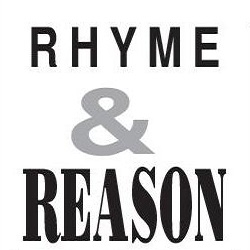The Great Surrender-1
18 Oct 2024 11:32:39

By Kartik lokhande :
Cultural surrender has far-reaching damaging consequences as it means separating from the roots, treating extensions as the
ultimate reality, getting charmed by perishable attractions, and losing the sense of pride in ownself, family, nation, language, heritage. The outcome is obvious -- becoming a slave to crafted reality instead of becoming a proud inheritor of a rich
legacy. Today, India is suffering the
consequences of such surrenders made in the past decades.
NOT all surrenders are made in the battlefield. Some surrenders are made to make peace with the trends, and such surrenders have the potential to seriously compromise the social, cultural, political, and economic interests of a society. Gradually, such surrenders pave the way to destruction of rich fabric of a nation. Among all these surrenders, cultural surrender is the most damaging one. For, it has far-reaching consequences. Unfortunately, a big chunk of the Indian population has been making these great surrenders to the peril of own familial, societal, and national interest.
Developing inferiority complex about own cultural heritage, treating each and every dimension of Indian culture as irrelevant, orthodox, and outdated, and then blindly adopting some foreign-bred philosophical and cultural colours, can together be termed as cultural surrender.
The inferiority complex about Indian cultural inheritance was created and then nurtured carefully through so-called modern education system. As a result, many in the past few generations of Indians abandoned several good cultural practices. They started treating everything Indian as something stupid, unintellectual, orthodox, or inferior to foreign-imported knowledge. In the process, own cultural icons were looked down upon. Gradually, this inferiority complex was cemented through motivated bunch of books, films, presentations, and practices in certain West-inclined circles.
Festival shaming is one such example. Over a few decades, Indian festivals have been linked to environmental damage.
The traditional Indian sweets have been replaced by chocolates, forgetting that the champions of the healthiest food practices follow the old saying, “Eat what your forefathers ate.” But, the impact of the content-driven marketplace has been so deep that those eating ‘laddus’ made from materials produced domestically are considered ‘old-fashioned’, but those eating chocolates on festivals are treated as ‘modern’. Those having a good home-cooked square meal are considered ‘orthodox’ but those eating out at places where kitchens are not visible are hailed as ‘foodies’.
Things have come to such a passe that decency has become orthodox and weirdo has become modern; classic literature, music, dance, poetry, songs in Indian languages have become relics and loud music with inaudible words amounting to desecration of melody have become the ‘in thing’; deep and meditative thinking has become boring but superficiality is treated as liberating and light; reading pleasure is replaced by screening leisure; good language is formal, and abusive language is normal; meal-and-milk is childish but booze-and-smoke is manly; loyalty is stagnation and adultery is romantic; giving time to child is a liability but spending time with pets is fashionable... one can go on and on.
But, caught in the eye of the content storm these days, people do not have time to stop and think what the highest elites in the society are practising.
Are these premium-class elites engaging in such cultural degeneration or are they preserving the cultural values in their respective families? People getting attracted to ‘content’ are left with no time to refine their personalities. Everywhere, rough edges are developing. The common thing being forgotten is that there is only one alphabet’s difference between evolution and revolution. Evolution gets transformed into something violent if it is prefixed with ‘r’ that stands for roughness.
This is not to stress that everything from the past of India should be preserved and followed blindly. There might have been some customs and traditions that outlived their utility or had particular time-context, and hence shedded naturally in due course of time. But, the Indian culture has offered enough space and maturity to shed such burdens of the past. For example, abolition of ‘sati’ tradition in due course of time could be treated as cultural evolution. But, encouraging crassness in the name of modernity and sacrificing classicism at the altar of so-called cultural revolution can never be accorded the stature of evolution.
Unfortunately, all these things are not being taken into account by a part of demography of present-day India.
For, people are willingly surrendering to the cultural degeneration out of the fear of missing out on something termed as ‘happening’. No doubt, there are people, including youngsters, who are truly interested in searching for the roots and developing their personalities in classical mould with shared cultural inheritance of knowledge. It is in these people that there is a promise to stop, if not reverse, the process of cultural surrender.
Cultural surrender has far-reaching damaging consequences as it means separating from the roots, treating extensions as the ultimate reality, getting charmed by perishable attractions, and losing the sense of pride in ownself, family, nation, language, heritage. The outcome is obvious -- becoming a slave to crafted reality instead of becoming a proud inheritor of a rich legacy. Today, India is suffering the consequences of such surrenders made in the past decades. Time has come to think deeply about it, and encourage the fresh interest in searching for the Indian cultural roots.
But, social surrender is creating new roadblocks in this pursuit.